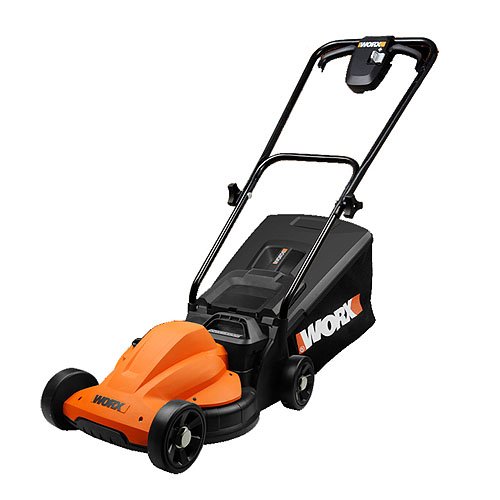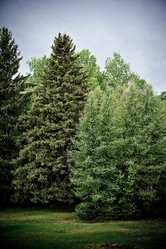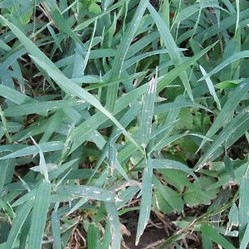Intense winters can lead to an increase in the incidence of winter diseases like snow mold and dead spots in your lawn. Good lawn care is vital to helping your lawn recover from the damage done from the cold temperatures during wintertime. Mowing at the suggested height for your grass type and properly timed fertilizer application will help your lawn recover from the winter diseases.
Setting your lawn mower to a low height setting can result in increased weeds in your lawn, because low height settings can expose the soil surface to sunlight and remove stored nutrients in leaf blades. Cool weather grasses like blue grass, fescues, and ryegrass should be mowed at a height of 2.5-3.5 inches tall. Warm season grasses like zoysia, centipede, Bermuda, and St. Augustine should be maintained at 1.5-2.5 inches tall. Try out an electric powered mower instead of a carbon-intensive gas powered mower.
It is very important to fertilize your lawn come springtime because the fertilization replenishes the food reserves that your yard uses while dormant in the wintertime. By fertilizing your lawn, you are fueling your grass into a phase of rapid growth. If you’ve been composting your kitchen waste for the last months, you can use your batch of compost to fertilize your lawn and garden, which will result in a healthy lawn that won’t be overrun with weeds. As an alternative to compost, try any number of packaged organic fertilizers that are available on the market.
Take the time to apply a per-emergent weed killer on your lawn to stop weeds from germinating even before they begin. Spring broadleaf weeds like clovers, dandelions, and plantains are best stopped in their tracks by keeping a good mowing height and by fertilizing your lawn. Following a mild winter, annual weeds that germinate in the fall like chickweed and henbit, will be easily detected and need higher degrees of broadleaf weed control via herbicides. Always avoid using chemical weed killers, as they are detrimental to the environment and take a look at something like BurnOut Weed & Grass Killer.






 How To Start A Tutoring Businesson 09/02/2017
How To Start A Tutoring Businesson 09/02/2017
 Cat Scrapbook Ideason 01/11/2017
Cat Scrapbook Ideason 01/11/2017
 Country Themed Scrapbookson 01/10/2017
Country Themed Scrapbookson 01/10/2017
 How To Research and Scrapbook Your Family Tree and Historyon 08/22/2015
How To Research and Scrapbook Your Family Tree and Historyon 08/22/2015


Share Your Ideas for Eco-Friendly Lawn Care
I think it's great that you're promoting more environmentally friendly lawn care.
For small yards, a hand-powered reel mower (I.e. powered only by pushing) can be a great choice. These mowers are inexpensive, quiet, compact, and have minimal maintenance requirements--they only need to be sharpened every once in a while, and have no engine or motor.
I don't think weed killers and fertilizer are necessary for a healthy lawn--they can actually work against each other. For example, clover is a nitrogen fixer, so if you leave it in the lawn, it'll add nitrogen. Killing the clover will increase the nitrogen needs of the lawn...that's one reason I prefer to leave it and other small legumes. Some of the other "weed" species also appear because they are better adapted to the yard's conditions. For example, the native grass nimblewill tends to appear in wet, shady areas. It looks brown during the winter but grows more vigorously in shade because it's better adapted to it than most lawn grasses.
@KAqua absolutely - so much easier to use and so much more friendly towards our environment
Wonderful tips.
We try very hard to avoid using wildlife unfriendly products in our garden, because I cannot bear to think of our birds feeding poisoned insects to their babies.
I had not heard of Burnout but we do check the labels on everything we buy to reduce the impact on the wildlife.
We moved into a new house last fall and there was no lawn to speak of. I attempted to get some grass started and it was looking good, but then winter set in so we'll see what survived. But since we got over a foot of snow in the driveway today in Tahoe, It'll be a few weeks still!
I'm a big proponent of chemical free lawn care AND I love the electric lawnmower. When I had a smaller lawn, I actually used one of those old-fashioned rotary push mowers....can't do that anymore so electric is a great alternative.
I always want to do my part for the environment, thank for the eco friendly lawn care guide.
My new house has a "lawn" is actually a bunch of moss and stones in most areas. I will be working on bringing it back to life this summer. I've also never considered an electric mower. Thanks for the good advice Paul.